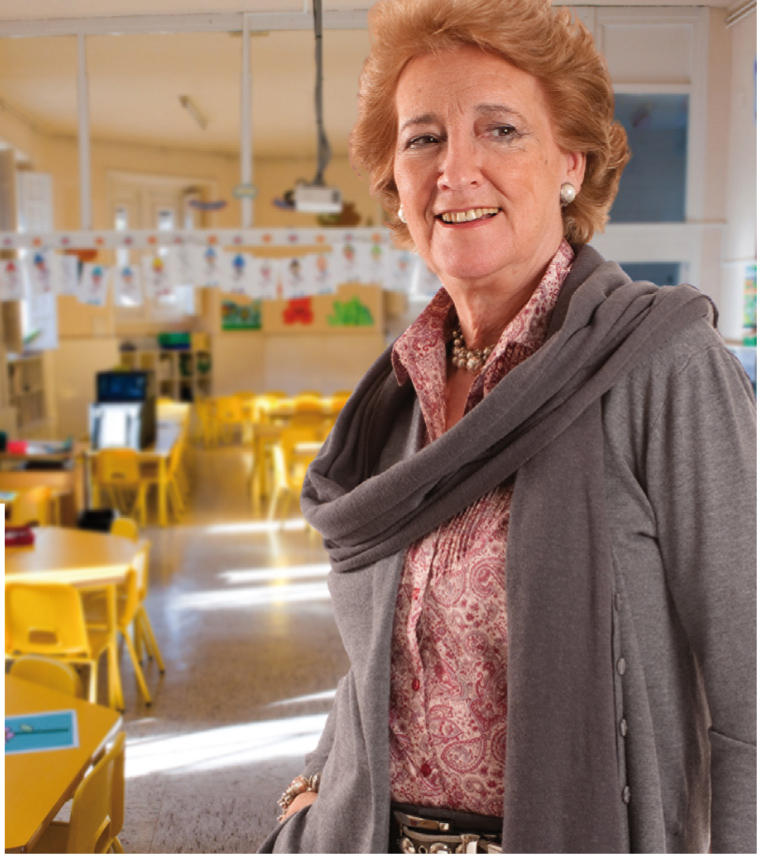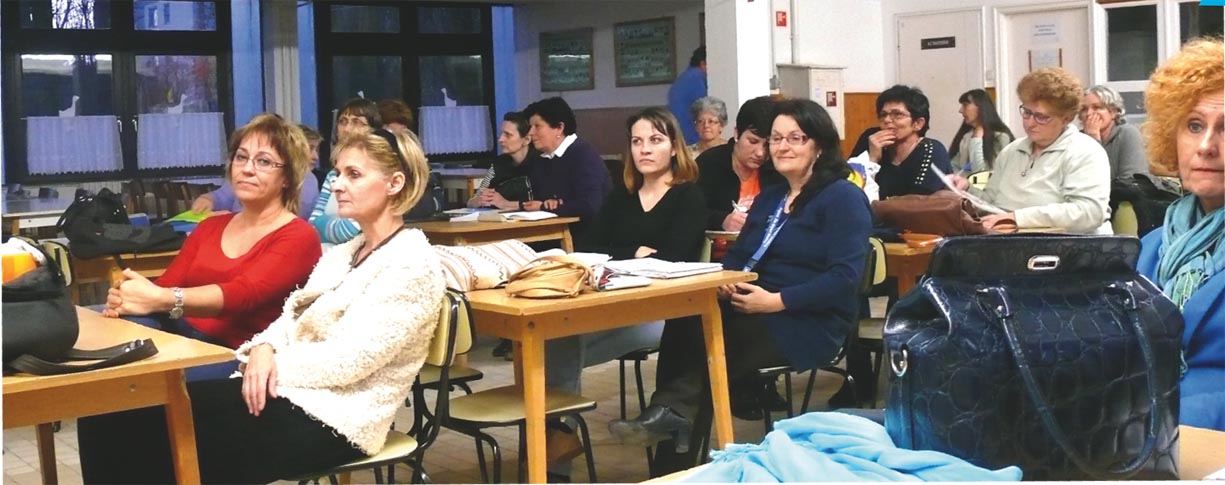
The professional experiences teachers gained during international cooperation projects should become part of the school’s everyday life. How does it look like from the point of view of school leaders?
The social and labour market challenges of the 21st century require dramatically different learning and teaching practices from the players of education. Children need to acquire new competences, to which teaching practices must adapt to, as well. Another challenge which teachers face is that they need to respond to the requirements of the changing professional and social environment much faster, which also requires them to adapt constantly, both in terms of methodology and their specific fields. Consequently, constant self-development has gained much more significance. The Erasmus+ project-based educational partnerships can be of great help to teachers and schools in that, too.
∗ ∗ ∗
 Our school has already been involved in a number of international projects specifically aimed at (besides students' development) teachers' professional development and becoming methodologically up-to-date. We can learn a lot from our Finnish partner, including how teachers of various subjects can harmonise their work. The implementation of interdisciplinarity and learning about the collaboration between teachers of various subjects, based on the Finnish method, were among our main goals, and now it is part of the school's educational programme. The projects addressing topics which are conventionally not discussed in the classroom, such as legality, lawfulness or employment, require a lot of extra preparation, and therefore yielded a lot of new knowledge. The teachers involved had to learn new concepts and topics in order to be able to help students with their work.
Our school has already been involved in a number of international projects specifically aimed at (besides students' development) teachers' professional development and becoming methodologically up-to-date. We can learn a lot from our Finnish partner, including how teachers of various subjects can harmonise their work. The implementation of interdisciplinarity and learning about the collaboration between teachers of various subjects, based on the Finnish method, were among our main goals, and now it is part of the school's educational programme. The projects addressing topics which are conventionally not discussed in the classroom, such as legality, lawfulness or employment, require a lot of extra preparation, and therefore yielded a lot of new knowledge. The teachers involved had to learn new concepts and topics in order to be able to help students with their work.
Dr. Ágnes Molnárné Szecskó, Principal of Csokonai Vitéz Mihály Secondary Grammar School, Debrecen
∗ ∗ ∗
The kindergarten has already been involved in three international partnerships; during the past few years, more and more colleagues joined the work, and our last project had four times as many participants as the first one. In many cases, the joint work also meant protection against burnout, which later we could already consciously use. As a result of the international project work, team work has become an integral part of the institutional structure. We’ve also learnt a lot about cooperation with the parents. Parents participate in the programmes of the kindergarten based on their skills and special fields, as there are areas where parents are much more competent and authoritative than kindergarten teachers (e.g. a biologist parent when planting plants together). The joint work deepens the relationship between the kindergarten staff and the parents, who can thus also appear in front of their children in a different role. Such cooperation clearly requires more organisation, but the result is worth it.
Zoltánné Bosnyák, Head of Benedek Elek Kindergarten, Paks
∗ ∗ ∗
Being involved in a project is at the same time an excellent language course, since the international partnerships motivated many of our colleagues to learn English intensively. During the projects, the teachers of the school learnt about the curricula and methods of the partner institutions, and they frequently exchange project materials. I think it’s very important that the experiences gained should become part of the school’s everyday life. The project materials have become constant elements of language classes, and whereas formerly the project method was scarcely used in our school, by now this practice has become common. Often, the other students of the school complete the same tasks and experiments as the international team and we compare the results. The projects have also changed the views of our colleagues, and they don't need to be encouraged; many of them can find their own areas and subject matters, and look for related opportunities. They manage themselves and set a good example to the teaching staff.
Zsoltné Szále, Principal of Árpád Fejedelem Primary School
∗ ∗ ∗

In the beginning, we launched partnerships in the field of natural sciences, which motivated our colleagues who teach general subjects, and they started to work out how the development could be extended to involve humanities, too. The staff members also share their experiences at workshops, and those colleagues who are open to the subject pass them on in work teams so that good practices can be integrated into classwork. In terms of methodology, we’ve learnt a lot, for example, from the fact that the students of our partners do a lot more project work in the classroom than those in our school, or generally in Hungarian schools, and therefore they can present any particular topic with greater self-confidence. This year, we have also integrated project work into our lesson plans in order to develop students' skills.
Lászlóné Hudacsek, Principal of Petrik Lajos Bilingual Technical College of Chemical Industry,
Environmental Protection and Information Technology, Budapest
Utolsó módosítás: 2017.10.16.












